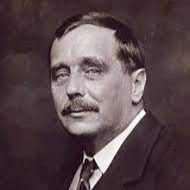This story draft by @hgwells has not been reviewed by an editor, YET.
THE INEXPERIENCED GHOST

English novelist, journalist, sociologist, and historian best known for such science fiction novels as The Time Machine.
About Author
English novelist, journalist, sociologist, and historian best known for such science fiction novels as The Time Machine.